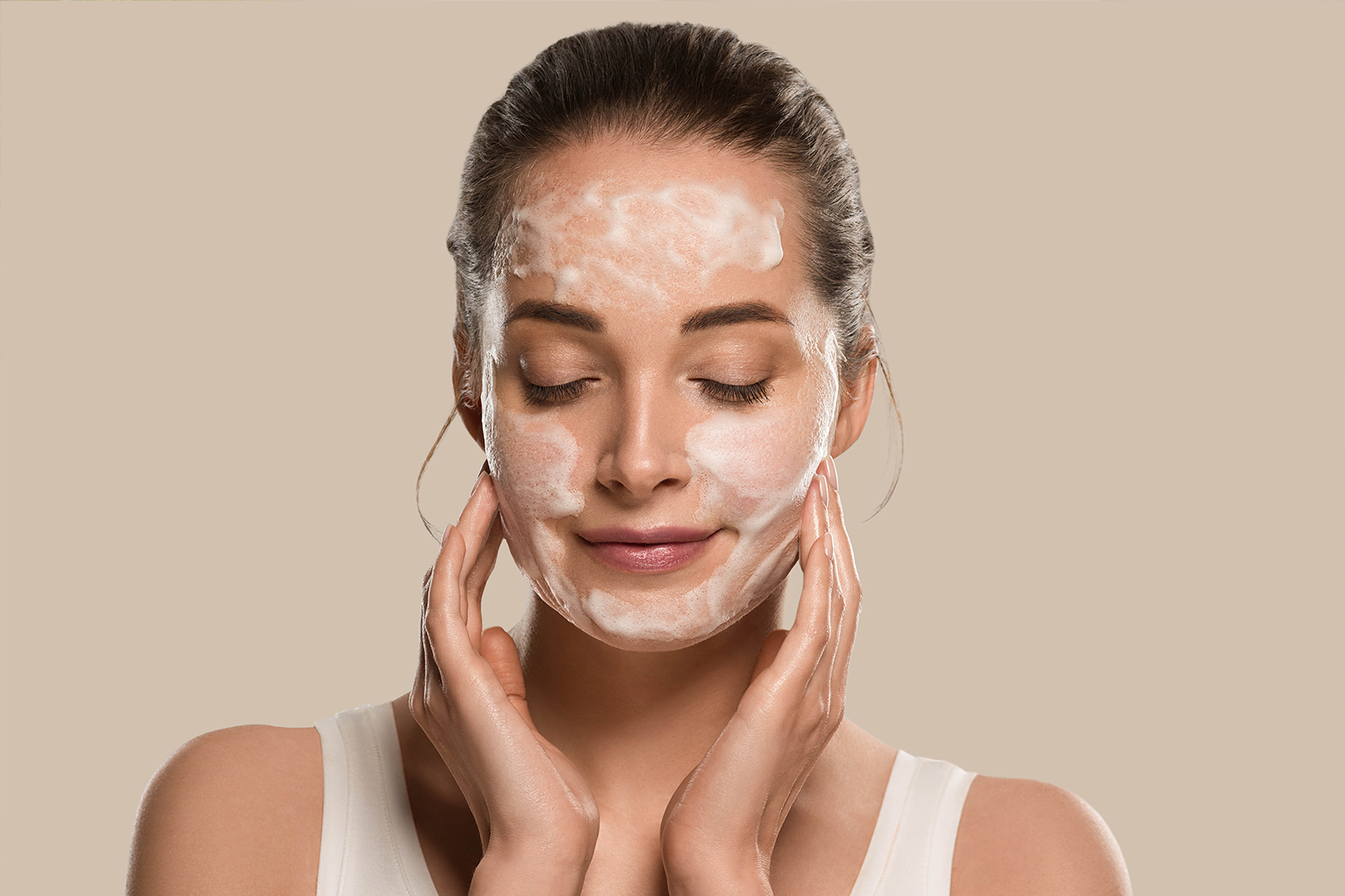We can all agree that during the cold winter months, our skin becomes dehydrated and we lose our usual glow. As the temperatures drop, so does the moisture level in our skin. Cold weather and central heating can cause the air to dry out, which in turn, dehydrates our skin. Lack of sunlight during winter can also deprive our skin of vitamin D, which makes it look dull and uneven.
To keep your skin looking and feeling softer, hydrated, and protected, we gathered a few external and internal winter skincare tips for you:
Treatment Plan: External Level Tips and Tricks
Always bathe/shower with lukewarm water. Hot water can easily strip your skin of its natural oils. If you want a little bit of stimulation and can tolerate it, you can have a quick “rinse” with cold water at the end of your bath/shower.
Avoid taking long baths/showers. The acid mantle of the skin —the mixture of water and oil that is responsible for protecting the skin, keeping it lubricious, and locking in moisture—, will be stripped if this becomes a habit.
Purchase a shower filter to remove drinking water contaminants. Tap water contains over 200 toxic chemicals[2], such as chlorine and fluoride, that can potentially alter the skin’s pH thus causing dryness and irritation.
Bathe/shower with a mildly acidic gel (pH 4.5 – 5.5). Soap-based formulas are alkaline in nature and will disturb the skin’s acidity[3]. When this happens, inflammation and tightness of the outermost layer of the skin will ensue.
Make sure you rinse cleansing formulas thoroughly. Residues can and do form a film on the skin that will irritate it and prevent active ingredients from penetrating.
Tone after showering/bathing with a mildly acidic solution. This is an extremely important step as it will help restore normal pH and hydrate the skin for optimal barrier function. You can prepare a toner at home by mixing pure water (70%) with apple cider vinegar (30%) and add 4-5 drops of lavender essential oil (provided you are not allergic/sensitive to it).
Exfoliate frequently (2 times/ week). Frequent exfoliation helps remove surface build-up; therefore, the skin will remain soft and smooth and more receptive to treatment-based options. If your skin is sensitive, start with 1 exfoliation every other week and then work up your applications (provided your delicate complexion allows you to do this). Avoid grainy formulas and favor those that contain natural enzymes and gentle AHAs like lactic acid.
Moisturize with ultra-nourishing, mildly acidic formulas. It is important to replenish the natural oils that have been stripped after showering/bathing, or by exposure to harsh environmental conditions, with a good cream as these oils are responsible for protecting the skin and maintaining its integrity. Apply moisturizer twice per day, emphasizing the face and hands. Ingredients to look for: argan oil, avocado seed oil, cranberry seed oil, rosehip oil, pomegranate seed oil, sea buckthorn oil, cacao butter and shea butter.
Apply sunscreen daily (SPF 30 minimum). Even though the winter sun is less intense, it can still burn your skin. Remember that snow reflects up to 85% of sun radiation[4]. Sunscreen should be applied 15 minutes before exposure and reapplied every 2 hours.
Dry brush every day. This is an excellent way of massaging your skin. Dry brushing will not only remove all skin debris, but it will also stimulate circulation and help flush toxins through the lymphatic system[5]. Pay special attention to the rough areas: elbows, knees, feet, etc.
Pamper yourself. Once or twice per week, apply a natural/organic face mask (leave it on for 15 minutes) to regenerate/soothe the skin and promote a relaxed environment.
Do not forget your neglected areas. Maximize the application of rich moisturizers in very rough areas. Use emollient lip balms liberally and exfoliate your lips at least once per week with a toothbrush soaked in the vegetable oil of your choice (preferably organic). Always moisturize your hands after washing them. Smear organic coconut oil on your hands and feet at night and cover them with a pair of gloves/mittens and socks, respectively.
Dress warmly. This will prevent transepidermal water loss (TEWL) and encourage healthy blood flow, which will also keep your skin cells oxygenated.
Exercise. By improving circulation, exercise increases concentrations of oxygen and nutrients in the skin as well as promotes the synthesis of collagen and elastin[6]. The end result: a skin that looks healthy, young and radiant.
Purchase a humidifier. Humidifiers help combat dryness caused by indoor heating systems[7]. You do not need to invest hundreds of dollars in fancy humidifiers, just buy a piece of simple equipment to counteract the moisture zapping effect of heaters.
Alternatively, you can place a bowl of water near the heat source so that the water evaporates and the air of the room is kept humid.
Treatment Plan: Internal Level Tips and Tricks
Drink at least 8 glasses of water per day. Water is arguably the most important nutrient as it helps transport the other essential and non-essential nutrients throughout our bodies.
EAT more water. The water from fresh fruits and vegetables is easily absorbed by our cells and acts as the perfect vehicle for all the antioxidants they contain.
Pay attention to your alcohol and caffeinated beverages intake. Alcohol and caffeine are well known for dehydrating the skin inside-out because they act as diuretics[8]. To prevent this, besides going easy on them, have an extra glass of water for every cup of coffee or glass of alcohol that you drink.
Increase your consumption of essential fatty acids or EFAs (Omega-3) rich foods: Such as salmon, walnuts, purslane, scallops, cauliflower, cabbage, cloves, mustard seeds, halibut, shrimp, cod, tuna, tofu, kale, brussels sprouts, collard greens, spinach, romaine lettuce, winter squash and chia/flax/hemp seeds. Omega fatty acids are crucial components of the cell membranes and have been shown to nourish and reduce inflammation of the skin, both when applied topically and ingested.\
Supplement if necessary. If the aforementioned foods do not meet your EFAs needs, then by all means take mercury-free fish oil supplements. For vegetarians/vegans, you can easily replace these with algae-derived Omega-3/DHA supplements. Always consult your physician or health care professional before starting any supplement program.
We hope that our external and internal tips to keep your skin hydrated during winter will benefit you. Now we want to turn it over to you: Which ones have you been doing? And which ones are you too lazy to try? Also, make sure to follow us on Instagram, Facebook to learn all about the latest skincare trends.








Leave A Comment